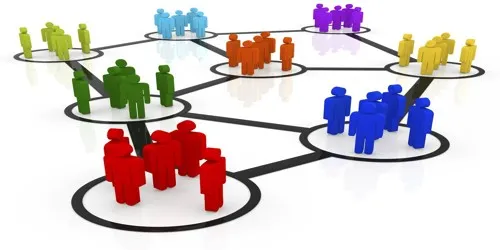Decentralization: The Key to Preserving Freedom
The Problems with Centralized Power
Currently, the United States is in a state of centralized power. Centralized power has several problems that impact the protection and freedom of a country’s citizens. Centralized power represents a single point of failure to a malicious attack, meaning there is one main target for those that want to attack. This also means there is a single point of corruption and a single point of abuse with one leader. A benevolent leader easily be corrupted, or a malicious leader can take advantage of the power for their purposes. With centralized power, laws tend toward a “one-size-fits-all” mentality, and freedom only exists at the whims of the leader. This type of system is unstable and could easily be used to wreak havoc.
Freedom in Decentralization
Decentralization is the opposite of centralized power. With decentralization, there are multiple points of resistance to failure from a malicious attack, instead of one. There is also no single leader to corrupt or to use abuse, so there is immunity to corruption and abuse. Decentralization promotes multiple solutions, instead of one, each catering to local needs, wants, and desires. With this type of power, freedom exists as long as any one free node remains.
Cryptographic Privacy
The contrast between centralization and decentralization of power is especially clear in the areas of privacy, currency, and social media. As a centralized power, the United States is a surveillance state, which is a country where the government engages in widespread surveillance of its citizens and visitors. Vast amounts of data are being collected and can reveal your personal and political preferences. This information could be used against you, especially if someone in power wants to use that data to eliminate their opponents.
Cryptographic privacy is the decentralized solution. Cryptography is the intersection of technology and personal freedom, and it gives power to individuals. With cryptographic privacy, the individual controls their identity and property, and a third party is not required to prove identity. However, an issue with some encryption methods is that quantum computing may be able to decrypt them in five to twenty years; for this reason, a quantum-proof encryption method is recommended.
Digital Currency
There are also issues with centralized, government-issued currency. Since the United States dollar is not backed by gold anymore, it is susceptible to manipulation. This enables indirect and international taxation. Indirect taxation happens in the United States when the money supply is increased, because this subsequently decreases the purchasing power of a dollar. The same thing happens internationally when the money supply is increased. As a result, those paying for something with the US dollar, domestically and internationally, can buy less than they could before the money supply increased. Additionally, the ability to transact is ultimately tied to the established banking system and strict government oversight.
In contrast, digital currencies can be decentralized. Not all digital currencies are decentralized, but those that are have freedom from manipulation, government oversight, and the banking establishment. If adequately decentralized, manipulation is difficult because any change to the money supply requires consensus. This currency is also worldwide and has instantaneous portability.
Decentralized Social Media
Centralized social media is any social media platform where one entity has control over every individual’s account. This includes the mainstream platforms like Facebook, Twitter, Instagram, and Snapchat. In centralized social media, users do not have freedom of speech and individual accounts are subject to those in charge. Some notable examples of this lack of freedom have involved Donald Trump and Hunter Biden. There have been times when a social media platform has suspended an account because of what is being posted.
However, with decentralized social media, no single person or entity can delete or suspend your account. Additionally, no one else can remove any followers from your account, stop you from posting content, or delete content you have posted. Censorship becomes solely recipient-driven because viewers have the responsibility to filter what they may or may not want to see.
Barriers and Risks to Decentralization
There are many benefits to decentralization, but there are also barriers and risks to consider. There is a risk to those who are in central authority positions and those who want widespread measures of control, because decentralization would remove these areas of power. In general, decentralization means less control over individuals. There would be less control on “bad” transactions with currency, as well as less control with social media. There would be no censorship, and it would be up to the individual to enact filters. In true decentralization, nobody has control.
It is also important to recognize the barriers to decentralization that exist because of the nature of centralization. Decentralization means that those currently in authority positions would take away their own power or have it taken away from them. However, those in authority positions typically want to keep their power. In addition, I do not think many people are aware of the option of decentralization and the benefits that could come from it. With the current administration, more people may be noticing exactly how much power our government has and may raise concerns. There are many areas that would need to change for decentralization to happen, which causes me to think that education is one of the most important aspects of change. Decentralization also seems like it would be an extreme change from how the United States currently operates, which makes me skeptical that it could work. However, maybe that illuminates just how much decentralization is needed.
